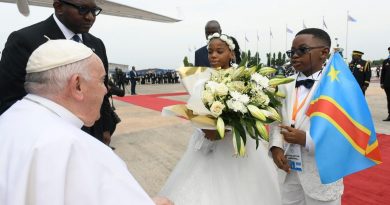“Full of Firsts”: Sudan’s Plan to Hand Omar al-Bashir to ICC for Genocide
Stephanie Miller
Editor in Chief
On February 12, Sudan’s transitional government announced its decision to hand ousted ex-President Omar al-Bashir to the International Criminal Court to face charges of genocide and war crimes during the war in Darfur, according to The Guardian. The expelled dictator is accused of criminal responsibility for the killing, maiming, and torture of an estimated 400,000 people in Darfur from 2003 until last year in addition to the displacement of some 2.7 million civilians.
Although the move has been lauded by the international community for its decisive stance on accountability for mass atrocities committed by Bashir’s regime, experts speculate that the delicate judicial process will have far-reaching implications for both Sudan and the ICC moving forward.
“Whether Bashir will be sent to the court in The Hague, or if he will be tried in a judicial process that may have ICC involvement in Sudan itself is still not clear,” reports Sudan expert Alex de Waal to the BBC. He goes on to say that if Bashir is extradited to The Hague, the first step will be a confirmation of charges hearing.
Bloomberg reports that although Sudan’s transitional government indicated he may face the ICC as part of a deal with rebel factions, it is not immediately clear if he will be surrendered to the Hague or stand trial in another way.
The case against Omar al-Bashir is full of firsts for the ICC. According to the Coalition for the International Criminal Court, Bashir is the first sitting head-of-state to be issued with an ICC arrest warrant and is on the receiving end of the first genocide charge ever brought by the Court. The Economist points out that his conviction would set a historic precedent and arguably give the Court the credibility it so desperately needs. The ICC’s inability to enforce its own warrant left Bashir to roam free for over a decade, damaging its reputation and raising questions about its potency.
“The ICC has suffered recent cases in which defendants were acquitted,” de Waal states. “It cannot afford another high-profile failure.”
Jens David Ohlin, an expert on international criminal law at Cornell University, told The Guardian that Bashir’s transfer to The Hague would mean “redemption for a criminal court that has struggled to live up to its creators’ lofty ambitions.”
“Although the ICC has generated important legal precedents, it has had few important cases brought to verdict. This is a historic day for international criminal justice,” Ohlin said.
Under the “principle of complementarity,” the Court does not typically step in to try war criminals unless a country is either unwilling or genuinely unable to investigate and prosecute such crimes, according to Human Rights Watch.
“Southerners who suffered under Bashir want him tried by the ICC,” NPR’s Eyder Peralta reports. “But the military, which still holds most of the power in Sudan and whose members fear their own prosecution, has preferred to try Bashir at home.”
Outsourcing the judicial proceedings to the ICC would legitimize the transitional government’s commitment to accountability while taking the pressure off various military officials whose actions during the Darfur genocide were equally questionable. For example, although former Janjaweed militiaman General Mohamed Hamdan ‘Hemetti’ Dagalo is accused of “a slew of atrocities” in Darfur, he continues to retain immense influence over the transitional government today, according to Justin Lynch with Foreign Policy.
Although extraditing Bashir could be seen by Sudanese nationalists as undermining to the transitional government, Sudan’s expressed willingness to hand Bashir over to The Hague signals that the transitional government may not yet be prepared to adequately handle a high-profile trial on its own. Alex de Waal points out that the Sudanese government is desperate for the United States to lift its designation as a state sponsor of terror and provide much-needed debt relief for economic re-stabilization. Utilizing its cooperation with the ICC – whose jurisdiction, in this case, has been hotly contested given Sudan is not a party to the Rome Statute – is a step towards lifting those sanctions.
“It was the former regime that supported terrorism and the Sudanese people revolted against it. These sanctions have caused tremendous suffering to our people,” Sudanese Prime Minister Abdalla Hamdok said during an address at the UN General Assembly in September, according to Al Jazeera.
“Therefore, we call on the United States to remove Sudan from the list of state sponsors of terrorism and to stop punishing the people of Sudan for crimes committed by the former regime.”

